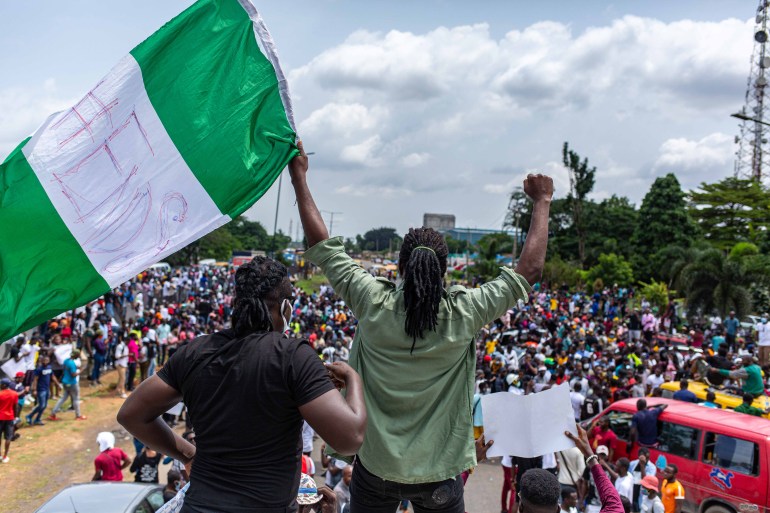It was a very angry Shola Odunfa who filed a live report on the BBC World Television that Sunday afternoon, many hours after the ill-fated BELLVIEW plane of the previous night. Shola, ever the consummate professional expressed his frustration with the total confusion that had overtaken the country, at a time when what was most needed was leadership and focus. I put a call through to Shola soon after his live hook up with London, largely because I was as angry as he was feeling at the near total breakdown of our national crisis response mechanism, at such a crucial time. Our confused internal situation was fed into the international arena, as the international media were reporting, what with hindsight, was a near fictional account of the reality that the country faced. Early on Sunday, the 23rd of October, we had given instructions to Abdulrazaq Adebayo, our correspondent in Ilorin to make for Kishi which is close to the Baruten local government area of Kwara state, to find all the details he possibly could, about the ill-fated plane that was said to be somewhere there. Abdulrazaq left in company of other reporters from media houses all around the country. A few hours later, in the afternoon, Kabiru Yusuf, our Editor-In-Chief, whose friend’s wife was on that flight, called me to find out if I could get a reliable reporter in Ilorin, to visit the University of Ilorin Teaching Hospital, to see the alleged survivors who had been taken into that establishment. I tried to reach two of my old reporters from KWTV, without much success. I was eventually able to speak with Nurudeen Abdulrahim, Special Assistant to Governor Saraki, at the Government House, Ilorin. A journalist himself, Nurudeen described to me in some detail the elaborate effort that the government had put in place in Ilorin. The teaching hospital was already on notice to receive the injured and the dead, while the Deputy Governor, the State Commissioner of Police, Commandant of the Military Formation in Ilorin as well as the Commissioner for Health, had gone on what was to be a wild geese chase, to the rural backwaters of Kishi. As it turned out, everybody had been focused on the Kishi angle, while the plane that was said to have lost contact with the control tower just three minutes into the flight, had actually crashed a couple of miles from Lagos. It took the African Independent Television (AIT), to achieve the sensational scoop from the site of the crash, for Nigerians to know the truth. The questions and recriminations have come in torrents ever since. Why did Nigeria get it so wrong? Who was responsible for the incompetent handling of the affairs, especially the management of information? Why would an agency, agencies or individuals deliberately mislead a whole country, its leaders, its media and by extension the international media and the wider world? Who was expected to provide leadership in such a crucial moment as Nigeria went through during those tragically critical hours, when what people needed most was reliable and accurate information about the fate of the plane, its location, the exact state of its passengers and related issues? Those of us in the media were caught right in the middle of the tragic events, and discovered to our chagrin, just how incompetent our emergency management system was! We were led around the whole place like a pack of headless chickens, by officials who used disinformation as a weapon of denial; denial of the consequence of the whole sequence of events that culminated in the crash of the plane, and the failure of the national response system. So when AIT broke the story, which clearly contradicted the lies and disinformation that had been spurned into the public realm, over the previous twelve to fourteen hours, it became clear that there was so much wrong with the Nigerian system. The AIT did a good job of unearthing a scoop, in the very best tradition of journalism. However, the graphic presentation of close-up shots of victims, with disemboweled bodies, and other gory details that came within the frames of the camera work, revealed the most unpardonable levels of unprofessional use of television that can happen in such a tragic situation. The commentators that handled the descriptions of the images were also without the composure, maturity and sobriety that should accompany such a major journalistic scoop, but one that was in every sense, a major tragedy for the country. It was the excuse that was used to justify the clampdown on AIT, by the National Broadcasting Commission, the regulatory agency for the broadcasting industry. It was a very unpopular move with the Nigerian media. In the first place, even BBC TV reported on the night of the order to close the station, with some incredulity, that Nigerian authorities had order the closure of the station that discovered the site of the crash! For the Nigerian media, it seemed obvious that government was punishing AIT for exposing the incompetence, disinformation and lies that various government agencies had fed Nigerians with. The various editorials written about the closure of AIT, reflected the general feeling in the media. But there was much more to it. Last Sunday night, the leadership of the National Broadcasting Commission met with editors from the Nigerian media, to explain their side of the story, in respect of the events leading to the decision to temporarily close down AIT. It was brought home to the NBC leadership by the editors, that any attempt to use the authoritarian stick to beat the media was always unacceptable to the media. The editor of Punch, Azubuike reminded the NBC team of the pains and agony that the media went through during the days of military dictatorship. It was therefore unacceptable that such methods would be employed at a time that we are supposed to be consolidating democracy. Debo Adeshina, editor of THE GUARDIAN stated clearly also, that the NBC came out of the experience with what he called a ‘very bad odour’, as a result of that clamp down on AIT. But for me, the one problem associated with the crisis of the last two weeks in Nigeria, was the attitude of the national public service broadcaster, the Nigerian Television Authority, the NTA. Why are the very well-known public service broadcasters so highly respected? What makes the BBC, SABC or CBC such formidable national institutions? It is because they aggregate the national sensibility, reflect the complex social political and cultural diversities of their countries, give adequate coverage to the different political tendencies and ultimately present loyalty to the state not to the regime in power. This is why in times of crisis; they present a platform to draw the country together. The citizens trust them based on their track records of professional presentation of news and views and the upholding of the highest journalistic standards. Everybody knows that the BBC is the quintessentially British institution, but nobody will accuse it of being in the pocket of Tony Blair. At some critical junctures, as the illegal war of aggression against Iraq showed, these institutions can even take positions that aggregate to the national feeling, which was not even acceptable to the regime of Tony Blair. That is the essence of the great public service broadcaster. Our own NTA did not live up to its place in our society during the crisis of the last few days. There was no systematic efforts to reach the various agencies of government that were responsible for the management of emergencies. The NTA repeated ad naseum, a press conference given by the Minister of Information without any effort to probe issues to assist us in finding answers. For NTA, the most important issue was the (equally tragic, no doubts) death of Mrs. Stella Obasanjo, while the death of the 117 Nigerians in the Bellview air crash, was treated almost like a footnote to the death of the first lady. One got the impression that someone was more interested in playing the sycophantic card, than really performing the social responsibility role, expected of a great national institution, such as the Nigerian Television Authority. There was therefore a failure of leadership in this national institution, just as in other agencies of government that were expected to provide leadership in search and rescue, in the provision of information and in generally assisting the citizenry to come to terms with crisis. That confusion deepened anxieties, triggered anger and reflected the high levels of incompetence in our various agencies. But as has become the practice in Nigeria, nobody has taken responsibility, not one head of a relevant agency has volunteered to resign his appointment; each one is engaged in desperate PR to explain why or simply rationalise incompetence, lies and disinformation. For God’s sake, government must insist that people take responsibility voluntarily or they must be pushed out. The major candidates should be the Minister of Aviation and agencies that should have performed in the circumstance and the head of NEMA. These should be honourable enough to quit, just like the American head of the agency that failed during Hurricane Katrina did. We have also suggested that maybe the National Broadcasting Commission should take the lead to hold a national workshop for the media on the exigencies of the coverage of crisis. This should be an all-inclusive platform, bringing the media, the relevant agencies and media regulatory organs as well as intellectuals, to provide a platform to find the best ways to co-ordinate the coverage of crisis phenomena. Nobody prays for them, but as the Ejigbo crash, the Lagos bomb explosions and now the ill-fated Bellview flight have all shown, they seem to be an inevitable part of existence. What needs to be done, is to prepare adequately to deal with them; this includes the way the media handles or deploys the necessary competences of coverage and reportage, to respect the sensitivities of readers, listeners and viewers
NIGERIAN MEDIA CRISIS RESPONSE


